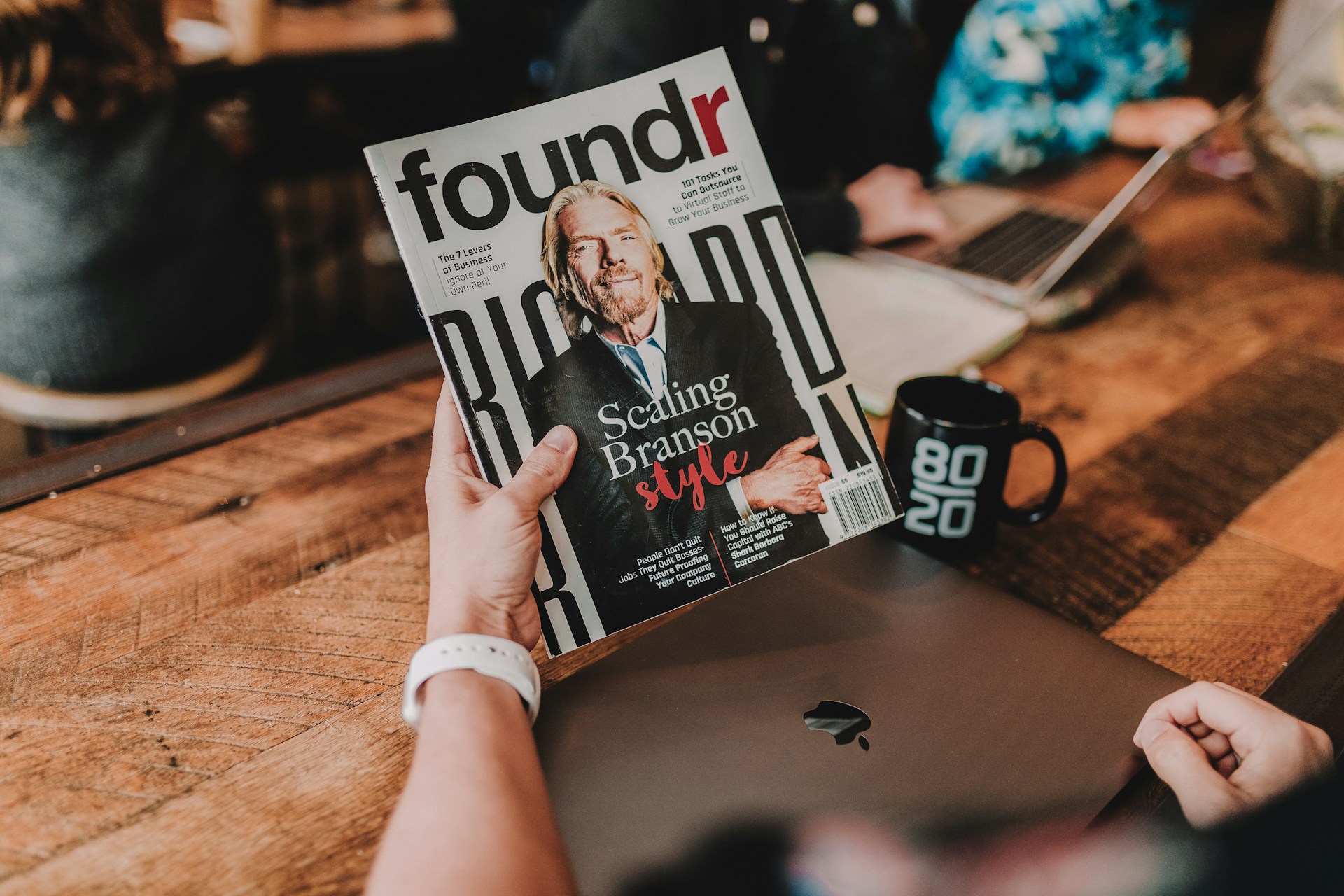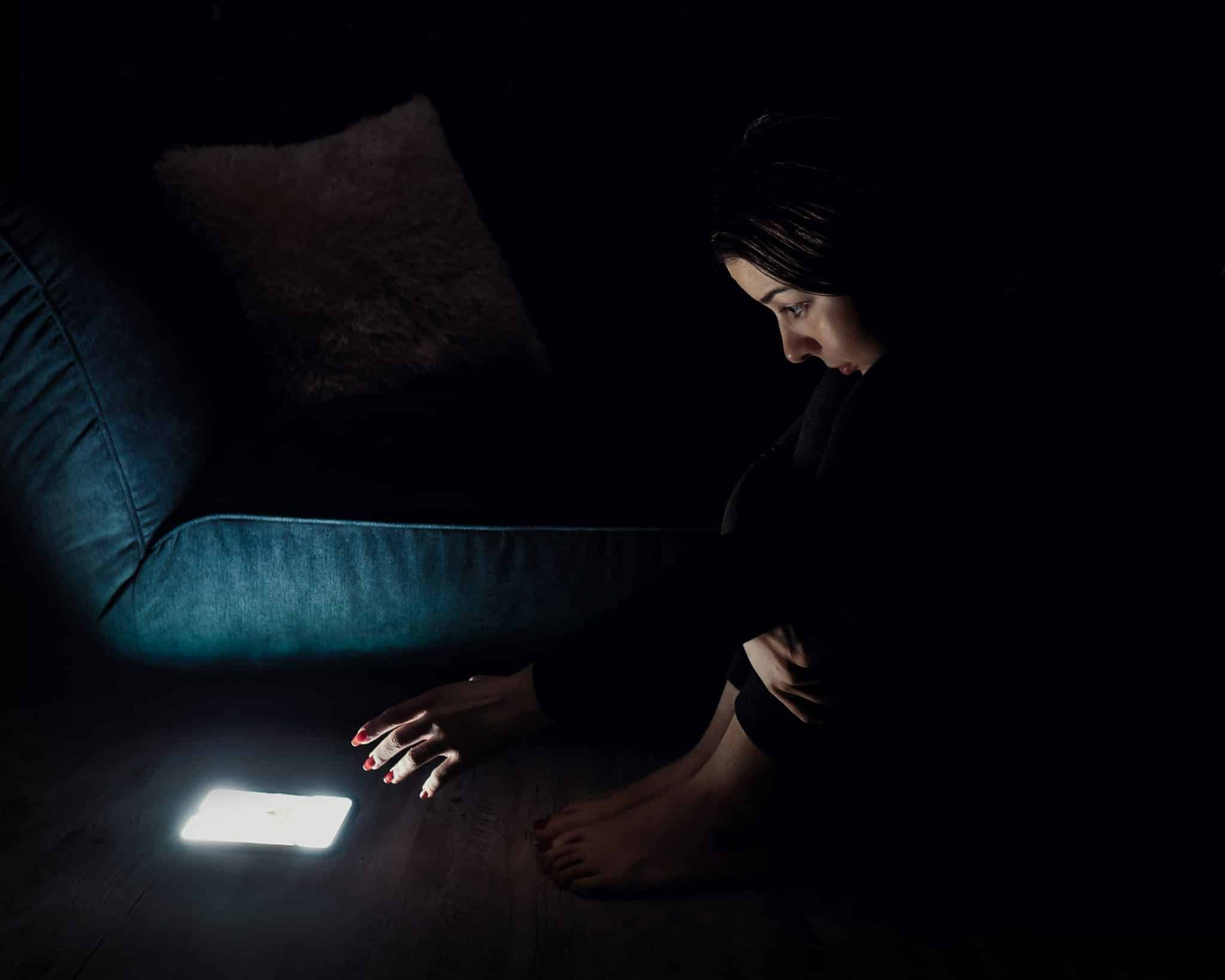Building Better Digital Habits with The Digital Habit Lab

A fun new way to disrupt your digital habits & live your life!
If 2022 was the year you vowed to get your digital habits in check, and willpower is already wearing thin, you’re in luck! The Digital Habit deck from Mind Over Tech is a fun and easy way to get a handle on your screen time – and it launches on Kickstarter today.
The project is the brainchild of Mind Over Tech founder Jonathan Garner, who joined us on the Freedom Matters podcast last year to talk about the evolution of work. Jonathan founded Mind over Tech in 2018, combining his experience as an artist, developer & UX designer, facilitator, and meditation instructor.

He created the company as a response to observing how the business world is undergoing rapid digital transformation but failing to support people in embracing these new technologies in a way that also protects their wellbeing, productivity, and creativity.
The Digital Habit Lab grew out of Jonathan’s experience helping individuals and teams to embrace technology with intention and take control of their digital lives, and we are excited to share the project with the Freedom community! We caught up with Jonathan to find out more about the Digital Habit Lab, and his own thoughts around technology, productivity, and how we can live more mindfully in a digital world.
Learn more about the Digital Habit Lab

Firstly, what started it all for you? When did you realize that your relationship with technology was something that needed to be examined, monitored, and even actively sculpted?
It’s funny you use the word sculpted because I actually studied sculpture for my degree. I have a fundamental love for making and designing things, and I later taught myself to code. I also have an interest in meditation and have been practicing in the Buddhist tradition for over 15 years. Now, I’m not a great practitioner, but I began to notice that any peace of mind and presence I was able to cultivate on the cushion was being immediately eroded when I started to use my work tools—my phone and my laptop. It was at this point I gave myself a choice: either leave tech and go back to a physical discipline like sculpture; OR try and find a way to be more intentional with my relationship with tech.
What is the Digital Habit Lab and how did it come into being?
The Digital Habit Lab is a physical toolkit for your digital life. It’s a collection of 50 bite-sized experiments that you can easily integrate into your day to learn more about your relationship with tech, and begin to create a personalized strategy for taking back control. Mind over Tech has been delivering corporate workshops for the last 3 years, and this is where the cards began their life. At first, they were just small slips of paper with small challenges on, but over time they have evolved into this fully fleshed out resource. There are many years of research here condensed down into easily digestible (and fun) experiments.
What is the significance of the deck being a physical product as opposed to an app or interactive website?
Well, most obviously it offers an offline-first approach to exploring your relationship with tech. Like the team at Freedom, we are not anti-tech. But I do believe that we should be considering if a piece of tech really aligns with our needs before using it, and so this physical design embodies this idea. You can scan the QR codes on the back to go deeper and get some digital solutions too, but it was important to have a physical starting point. They are also designed to spark and facilitate conversation with others about our digital lives, so the physical card format is perfect for that too.

What has been the most interesting or astounding learning from your work at Mind Over Tech?
It still amazes me just how unique and different everyone’s needs from tech are. As tech continues to pervade every moment of our lives, the ways we use it and rely on it are as nuanced and unique as we are. This means, of course, there are not easy, template solutions to building a better relationship with it. That’s something we all need to figure out for ourselves.
While every piece of technology brings amazing new potential, it also marks the loss of something special. Remembering this can help you make important decisions about how you integrate tech into your life.
What is something everyone should know about how phones impact our lives, focus, or productivity?
The classic answer would be sharing stats like how we check our phones every 6 minutes of the day. Which is true. But sometimes I feel these things can be used to shape an alarmist narrative. Every 6 minutes isn’t automatically bad. What would likely be a problem, however, is if almost all of those interactions are unintentional. That is one huge impact of tech in our lives; it subtly erodes our capacity for agency—to do things because we decide to.
I think it’s really important to consider that while every piece of tech (even something like a printing press) gives us an amazing new potential (like printed books) it also marks the loss of something special (like hand-scribed calligraphy). Remembering this can help you make important decisions about how you integrate tech into your life.
As someone who wears multiple hats, how do you prioritize what tasks, activities, or people get your time each day?
This is a really important question. It’s so hard! I think it’s important to say I don’t have this all figured out perfectly. In fact, I don’t think that’s possible—I really see this as a lifelong practice, like staying fit. That said, there are a few things that are keeping me above water right now:
- I try to choose my digital tools to create clearly defined ‘spaces’, and try to only do the tasks required by one ‘hat’ in that space. This makes it easier to tell when the tasks inevitably start to blur together. There is a great browser plugin called Workona I use that really helps to define these different spaces.
- I don’t have a fancy “get things done system”. I have a clipboard with a sheet of paper, and I’ll write down everything in my head there in the morning. I’ll then circle the next most important task and try and do that, before circling another and continuing like that.
What is one small shift that you have made about the way you spend your time that had the largest impact on your quality of life?
The very first experiment when you open the Digital Habit Lab is ‘Avoid early morning tech use’. Now, like most of the experiments, this is not rocket science. But somehow actually living by this is really hard. When I am in a good place in life, I have a routine of getting up and going straight out for an hour’s walk without my phone. If I don’t have that long, I’ll do 5 mins. When I manage to keep this routine, it changes everything else about the shape of my day for the better. But inevitably I get busy and the habit slips. For example, running a Kickstarter campaign has knocked me off track! But I will return to it as soon as I can. That’s the practice.

What would you recommend as a first step for someone who wants to enjoy a more intentional relationship with technology?
Be curious! Don’t aim for or expect things to become perfect. I think we don’t even really know what a perfect relationship with tech looks like anyway. The way I see it is that bringing our curiosity and awareness to how we use our tech is actually bringing those things to our lives. Because we spend so much time with tech! Be playful, try out different experiments and habits to learn more about what works for you, and what doesn’t. Then slowly build a strategy that works for you in the long run.
Bringing curiosity and awareness to how we use our tech is actually bringing those things to our lives.
What does the future of work look like for you?
This might be a cop-out answer, but I don’t think anyone really knows the answer to this. But it’s clear that it is changing very quickly. That’s the thing with tech, it’s a catalyst, so change which would have been inevitable anyway just comes that much faster. I think the question we can more usefully all hold for ourselves is: what do I want my work to be like now? Tech looks slick from the outside, but inside it’s just a crazy, unplanned patch job. And work culture is very similar. The devil is in the details, and by focusing on them now we can help make sure the future of work is aligned to our best interests.
What else are you hoping to accomplish this year?
2022 is a big year for Mind over Tech. Alongside the Digital Habit Lab deck, we are also launching an integrated community, with live monthly events to help support and inspire people on their journey with their digital habits. I’m really excited to see how that develops. Establishing that offering to sit alongside our Digital Wellbeing corporate programs will be a fun challenge.



